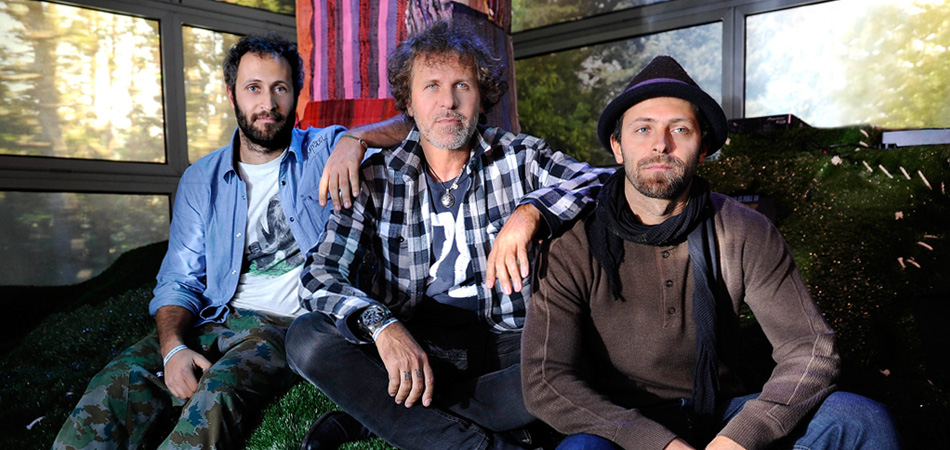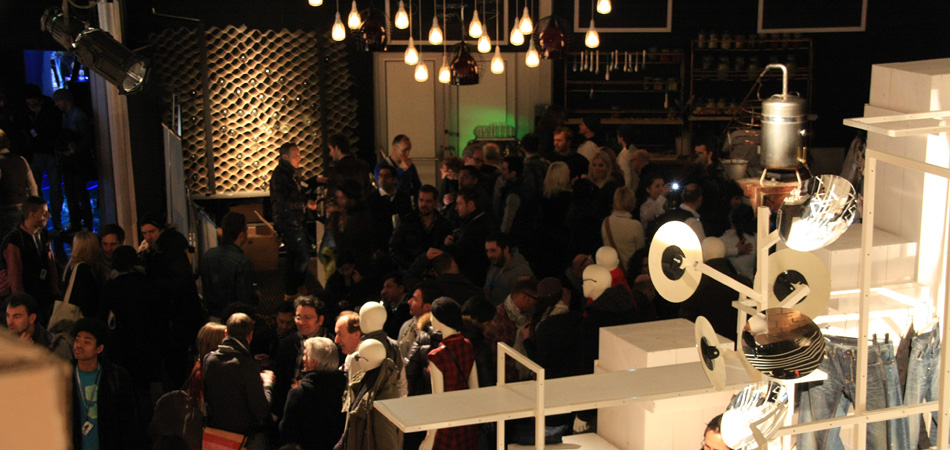Renzo Rosso: Be Stupid
A sit down with Diesel’s founder Renzo Rosso reveals the brand’s return to its roots, its new “Be Stupid” ad campaign, and the recent appointment of Bruno Collin as Diesel’s artistic director.

It was 32 years ago that Renzo Rosso founded Diesel. And since then, he has helped pioneer denim as a premium product and pushed the boundaries of provocative advertising. Through his perseverance, he has built a lifestyle empire that now includes everything from Diesel Men’s and Women’s collections, the higher-end Diesel Black Gold line (which recently tapped Sophia Kokosalaki as its designer) to a hotel, wine label, home collection and even a radio station. In 2000, Rosso, who gained full ownership of Diesel in 1985, acquired Staff International, the Italian manufacturer and distributor for such iconic names as Martin Margiela, Vivienne Westwood and DSquared. Under his Only the Brave group, he now has a controlling stake in Maison Martin Margiela and Viktor & Rolf as well. We caught up with the frenetic, floppy-haired Italian maestro in Berlin. With the Bread & Butter tradeshow as the backdrop, we spoke about Diesel’s return to its roots, its new “Be Stupid” ad campaign, and the recent appointment of Bruno Collin as Diesel’s artistic director.
Interview with Renzo Rosso
Your new ad campaign is called “Be Stupid.” What’s that about?
We want Diesel to go back to the real Diesel, like it was before. It was always innovative, young, rebellious, fresh, new, irreverent—stupid. Originally, it was like this and you can see today how this company in a very short time can still find this incredible new energy. It’s unbelievable.
Tell us more about Diesel’s roots in stupidity.
Well, I have done a lot of stupid things in my life.
Such as?
To call this brand Diesel was very stupid thirty years ago. Why? Because people thought it was petrol, it was about engines, it was fuel. People didn’t understand. Do you want me to buy your collection? “Who are you… Diesel?” They thought it was a joke and they didn’t think that the clothing could be sold with the Diesel name. At the beginning, it was very difficult. Very difficult. Then, it was very stupid to distress the denim, to make it look worn. People thought I was giving them secondhand jeans, and sent them back. Stupid was also when we opened our first store, in New York (1996), a big store in the biggest market in the world. I opened it close to Levi’s, just to show how nice our product was. It worked, but many people thought it was very stupid to try.
On the other hand, what’s smart about your company?
I think our brand is about the attitude that we have. The people who work at Diesel work with passion. There’s a passion behind everything we do. It’s a really smart company because we love what we’re doing, but we are stupid because we are brave enough to do things that normally other people won’t do. But in the end, that makes us smart.
How does the Diesel brand relate to your higher-end, more conceptually-oriented labels like Viktor & Rolf and Margiela?
They’re not Diesel, they’re part of Only the Brave, the group. So we are part of one big group, the group is Only the Brave, and under this umbrella we have Diesel, Staff International, Viktor & Rolf, Margiela, the Hotel Pelican [in Miami Beach] and we have the wine company. We have more brands too. It’s very nice because we can share opinions or different creative visions, different worlds, different mentalities and different attitudes. We receive a lot more input from across a diverse group.
In addition to Diesel’s premium Black Gold line, you also have a Diesel home collection, Diesel helmets, even a Diesel Fiat car. Does spreading Diesel around like that risk diluting the brand?
It’s not us, it’s the consumer. The consumer wants this kind of brand, because the brand is really a lifestyle and the consumer more and more wants to follow someone that they trust, so they’re asking us to bring our touch to different things that are not our core business. So we did helmets, for example, which were an incredible success, they sold out everywhere. We did the Fiat, which is very special. We don’t make much money on these things. Instead, we do it to add coolness to our brand. To make it more about lifestyle.

What made you launch Black Gold in 2008? Why did Diesel need a premium collection?
It was also a market demand. Diesel is 32 years old and we have a lot of consumers who have more possibilities for buying a higher-end product. So we created not a luxury—because I don’t like the word “luxury”—but we created a premium, more contemporary line for the consumer who loves the style of Diesel but wants something more exclusive and fashion oriented.
A lot of jeans and urban apparel brands are about lifestyle. How is Diesel different?
You could put 10 different jeans from 10 different brands on a table and I could show you why Diesel is very different. It’s different in the shape, the fit, which is very characteristic. When someone is walking down the street, you can tell if it’s the fit of Diesel. There are so many little details in our product that you cannot find in other jeans. Also, we have special technologies for treating the jeans that only we have, machines that are built only for our production. We have a group of people in the company who work in a closed area—nobody else can enter—and every single day, they develop new treatments, washing processes, yarns and constructions. This is really where our know-how is.
Your new artistic director, Bruno Collin, is not a designer, but rather comes from the magazine world. (Among other things, Collin was founder and publisher of Paris-based fashion and lifestyle magazine WAD)
For a company like Diesel, we have many creative people, many designers on board, so we were looking for someone who could be a creative director not in terms of designing, but in terms of providing input. And I think the minds of people running magazines are fantastic because they always go out and see the new trends in everything. It can be the best of a lot of things, clothing, restaurants, clubs, bars, music, pretty much the best of everything. So this kind of attitude is fantastic for running a brand like Diesel that today is really a lifestyle involving a lot of different products.
How is Diesel evolving online?
Online, we are moving a lot towards our website right now, because the new generation is only about the web. Especially with this “Be Stupid” campaign, we’re talking with the blogs, we’re talking with—the web for me is fantastic, because you cannot tell people what to do. They just do what they feel is their reality. And this is fantastic. I think that really is our attitude, too. We already have our radio station, Diesel U: Music Radio, and now we want to develop our own television channel on the web.
Do you think other fashion brands have lagged behind in addressing the web?
Some of them, yes. But this is the future. The web is the future, and it’s going to be more and more important.
When you’re not thinking about Diesel, what do you do?
Well, first of all, I’m not running only Diesel, I’m also running the other brands—Viktor & Rolf, Margiela, DSquared—the children’s line, bags, watches, the shades, advertising. This is in addition to the other things I mentioned like the hotel, The Pelican, in Miami Beach… and we also do our own wine. And then I have my six children.
Six children?
Six children. And also I enjoy very much time with my friends, I play soccer, I train, I do yoga.
Would you say you’ve been successful at being stupid?
If you want to be successful, you need to be stupid.
Interview: Aric Chen
